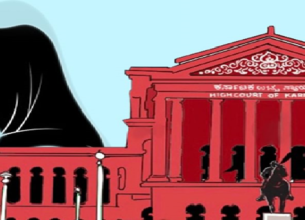TIME LIMIT ON ADVANCE BAIL VIOLATES PERSONAL LIBERTY
30, Jan 2020

Prelims level : Rights Issues
Mains level : GS-II Indian Constitution- Historical Underpinnings, Evolution, Features, Amendments, Significant Provisions and basic structure.
Why in News?
- The SC in its recent judgement has held that the protection of anticipatory or pre-arrest bail cannot be limited to any time frame or “fixed period”.
What is Anticipatory Bail?
- Under Indian criminal law, there is a provision for anticipatory bail under Section 438 of the Criminal Procedure Code.
- Law Commission of Indiain its 41st report recommended incorporating this provision in procedure code.
- This provision allows a person to seek bail in anticipation of an arrest on accusation of having committed a non-bailable offence.
- Anticipatory bail is a direction to release a person on bail, issued even before the person is arrested.
- It is only issued by the Sessions court and High Court.
Why such a Law is Needed?
- Anticipatory bail helps to prevent influential powers from implicating their rivals in false cases.
- Section 438(anticipatory bail) of the Code of Criminal Procedure protects people from the ignominy of detention in jail for days on end and disgrace to their reputation.
- Anticipatory bail is more needed now because there is rising trend of political rivalry and is showing signs of steady increase.
What is the Issue?
- The questions referred to the Constitution Bench were, whether the protection granted to a person under Section 438 should be limited to a fixed period till the accused surrenders in court.
- Whether the life of anticipatory bail should end when the accused is summoned by the court.
What is the Judgement Given?
- The life or duration of an anticipatory bail order does not normally end at the time and stage when the accused is summoned by the court, or when charges are framed, but can continue till the end of the trial.

Why this Judgement?
- Denial of bail amounts to deprivation of the Article 21 of the Indian Constitution (fundamental right to personal liberty in a free and democratic country).
- The spectre of arbitrary and heavy-handed arrests: too often, to harass and humiliate citizens, and oftentimes, at the interest of powerful individuals (and not to further any meaningful investigation into offences) led to the enactment of Section 438.
- The protection against arrest should be in favour of the accused. Restricting the protection would prove unfavourable for the accused.
Is there any a Restriction or Condition for Granting Bail?
- It is open for a court to impose appropriate conditions for grant of anticipatory bail if the specific facts or the feature of the offence involved demands it.
- Courts have to consider the nature of the offence, the role of the person, the likelihood of his influencing the course of investigation or tampering of evidence, including intimidating witnesses and Fleeing Justice.
- But restrictions/conditions can be imposed only on a case-to-case basis.
What is the Concern?
- The court held that a plea for anticipatory bail can be filed even before the registration of FIR as long as there is reasonable basis for apprehension of arrest and clarity of facts.
- However, the grant of protection should not be “blanket” but confined to specific offence or incident for which relief from arrest is sought.












